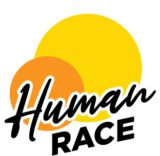The first time young Royston called out to me, “Kor Kor!” (big brother), was one of my happiest memories as a volunteer with Special Olympics. It was such a simple moment, a gesture taken for granted by most, but a huge milestone for us both.
Royston was the young athlete whom I had been paired with since I started my volunteering journey in 2017. Every weekend for over a year, we did simple sports activities together – throwing, catching, jumping, running – but he had never said a word to me. Royston, then 10, has autism.
I watched his progress week after week. He grew in strength and confidence, slowly but surely. I also saw how his parents realized through the program that they were not alone in this. There is an ecosystem that supports their child.
Young athletes like Royston are a constant inspiration for my students and me. I am a teacher at Saint Anthony’s Canossian Secondary School. Until 2020, I was in charge of the badminton program, as well as a member of the Values-in-Action committee where we plan activities for our students to develop and contribute meaningfully to the community.
A friend introduced me to Special Olympics Singapore in 2017, and that was when I got my students involved as volunteers. We have been volunteering with both the badminton outreach program for athletes with intellectual disabilities (ID) as young as 10, as well as the Young Athletes program, a sport-and-play program for younger children with and without ID to improve their cognitive and motor skills.
I tell my students that volunteering isn’t about ‘us’ helping or teaching ‘them’. It’s about mutual learning, respect, and making friends. They aren’t ‘beneficiaries’, they’re our buddies and athletes we learn and play with. In fact, some of my students have given me feedback that they can barely keep up with some of the athletes, who are really adept at sports. I remember there was a young athlete who was literally a mini Ronaldo, we couldn’t catch up! It’s a humbling and eye-opening experience for all of us.
Another student told me that she was inspired by Nadia, the elder sister of a young athlete named Ryan. Nadia may be a young Primary School student herself, but she shows maturity beyond her years. She’s always present to support and accompany Ryan for every session, constantly looking out for him and encouraging him. Through two years of volunteering and interacting with Nadia and Ryan, my student learnt how to be a better sibling to her own brother, who has Down Syndrome.
The first time I took my students for the badminton outreach program, I was tentative as I had never interacted with people with ID. I was nervous that I would not know how to react to them. But my worries were totally unfounded. The athletes were friendly and welcoming and made me feel like I had known them for decades. They wanted hugs, high-fives, fist bumps, and even teased that I was handsome!
It’s been almost five years, and they motivate my students and me all the time with their strength and resilience. They don’t ever judge, they always live in the moment, coming together for the pure and simple joy of the sport.
Amin is a badminton athlete in his mid-30s who has been training rigorously with the hope of one day representing Singapore at the Special Olympics World Games. He never fails to turn up for training at least an hour earlier. He has a temper, and can sometimes aggravate his teammates. One time, he threw a tantrum and stormed off in the middle of training. I had to reprimand him severely, reminding him about the importance of teamwork. Since then, he has been working hard to improve his attitude as well as his badminton skills. We can all learn from his diligence and perseverance. I am confident he will one day stand proudly on the world stage, bringing honour to us all.
I was privileged to travel with the Singapore team to Abu Dhabi in 2019 for the Special Olympics World Summer Games. It opened my eyes to how sports can truly empower and create an inclusive world.
I met an athlete from Macau who’s been in the movement for over 16 years and was a national hero, having represented his country at four world games. I spoke to a coach from Pakistan who shared how the Special Olympics movement helped athletes beyond the sports arena, to find employment and develop leadership skills. I was also inspired by a coach from Taiwan, who constantly innovates and comes up with new activities every weekend to keep her athletes engaged.
It made me realize that there are so many people all over the world fighting for a more accepting and fair society. Here in Singapore, we too, can and must do our part for people with ID. It is my goal to create more opportunities for students from Special Education schools and mainstream schools to interact. Growing up, I did not have these opportunities. But I hope for our young people, with and without disabilities, to experience life together so that we can create a truly inclusive society with equal opportunities for all. 6c

